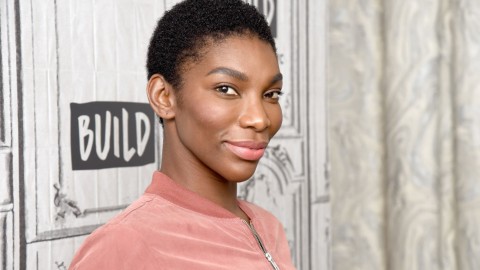
Oliver Dowden, Secretary of State for Digital, Culture, Media and Sport, has said performers no longer need to have “extra social distancing” on stage following the results of a new study.
As first reported on the BBC, the government and Public Health England backed study looked at the amount of aerosols and droplets generated by performers singing on stage.
A team of collaborative researchers from the University of Bristol, Imperial College London and the Royal Brompton Hospital analysed the amount of aerosols produced by singers with varying sounds, volumes and pitches.
The study, which has not yet been peer reviewed, found that singing did not produce “substantially more respiratory particles than speaking at a similar volume” in a study involving 25 participants in a controlled environment.
ARTS
Important step on getting performances back on
Medical study that Govt commissioned & funded shows that singing is no more risky than talking
So we can get performers back on stage without extra social distancing – 3m becomes 1m with mitigations https://t.co/Pku6xbKTKq
— Oliver Dowden (@OliverDowden) August 20, 2020
The performing arts guidance has now changed and is effective immediately
Good news for music venues, musicians, theatres & opera
We’ll keep working to get the arts going because we are #HereForCulture@ace_national @UK_Music @musicvenuetrust @glyndebourne
— Oliver Dowden (@OliverDowden) August 20, 2020
In response to the findings, Dowden said: “I know singing is an important passion and pastime for many people, who I’m sure will join me in welcoming the findings of this important study.
“We have worked closely with medical experts throughout this crisis to develop our understanding of Covid-19, and we have now updated our guidance in light of these findings so people can get back to performing together safely.”
Dowden later described the study as an “important step [in] getting performances back on,” via his Twitter account.
He added: “Medical study that Govt commissioned & funded shows that singing is no more risky than talking…
“So we can get performers back on stage without extra social distancing – 3m becomes 1m with mitigations.”
Dowden went on to explain that the guidance on social distancing for the performing arts “has now changed and is effective immediately.” NME has contacted Dowden’s office for further clarification.

One of the authors of the study, Jonathan Reid, who is Professor of Physical Chemistry at the University of Bristol, told the BBC: “Our research has provided a rigorous scientific basis for Covid-19 recommendations for arts venues to operate safely, for both the performers and audience, by ensuring that spaces are appropriately ventilated to reduce the risk of airborne transmission.”
Dr Rupert Beale of the Francis Crick Institute, added: “This important research suggests there is no specific excess risk of transmission due to singing. Loud speech and singing both carry excess risk however. This research supports the possibility of safe performance as long as there’s appropriate social distancing and ventilation.”
However, Dr Julian Tang, honorary associate professor in respiratory sciences at the University of Leicester, shared some concerns about the study.
Tang said: “The risk is amplified when a group of singers are singing together, [for example] singing to an audience, whether in churches or concert halls or theatres. It is a nice study but not exactly representative of the real whole choir dynamic, which really needs further study to truly assess the risk of such large volume synchronised singing vocalisations/exhalations.
“The risks should not be overly underestimated or played down because of this – we don’t want choir members getting infected and potentially dying from Covid-19 whilst doing what they love.”
Last month, more than 1,500 artists and industry figures came together to call on the government to stop “catastrophic damage” to live music amid the COVID-19 pandemic in the launch of the #LetTheMusicPlay campaign. After months of campaigning from fans and the world of music, the UK government revealed plans for an unprecedented cash injection of £1.57 billion to help the arts, culture and heritage industries survive the impact of closures brought on by coronavirus – providing music venues, independent cinemas, museums, galleries, theatres and heritage sites with emergency grants and loans.
Earlier this month (August 4), figures from the music industry added more volume to the #LetTheMusicPlay campaign to demand that the government share arts funding to protect the future live crew, musicians and the individuals working behind the scenes.
Head here to donate to the Save Our Venues campaign, where artists are also encouraged to sign up to play online fundraising gigs.
The post Culture Secretary says performers can get back on stage “without extra social distancing” following new study appeared first on NME Music News, Reviews, Videos, Galleries, Tickets and Blogs | NME.COM.







